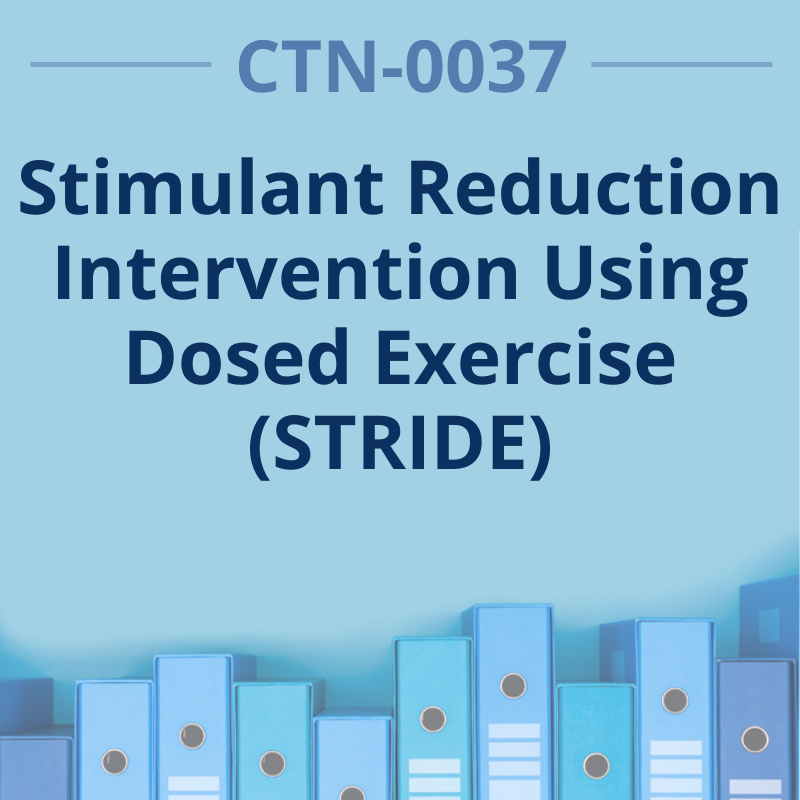CTN-0037: Stimulant Reduction Intervention Using Dosed Exercise (STRIDE)

Madhukar Trivedi, MD
Lead Investigator
Department of Psychiatry
University of Texas Southwestern Medical Center at Dallas
madhukar.trivedi@utsouthwestern.edu
There is a need for novel treatment approaches in substance use disorders that will increase the likelihood of abstinence. Clinical data examining the use of exercise as a treatment in nicotine and alcohol use suggest that exercise may be a beneficial treatment for substance use disorders and is likely to result in direct effects on substance use parameters such as decreased use and craving reduction. In addition, exercise is likely to benefit many other health issues that are negatively affected by substance use, such as sleep, cognitive function, mood, weight, quality of life, and anhedonia. Exercise has been shown to improve many of these domains in a host of other clinical disorders. The study is a 2-group, randomized controlled trial to test the effectiveness of the addition of exercise in improving drug treatment outcomes in stimulant and cocaine abusing individuals.
Primary Findings
The primary analysis indicted no significant difference between exercise and health education. Adjustment for intervention adherence showed modestly but significantly higher percent of abstinent days in the exercise group, suggesting that exercise may improve outcomes for stimulant users who have better adherence to an exercise dose.

Primary Outcomes Article: Trivedi MH, et al. Randomized controlled trial comparing exercise to health education for stimulant use disorder: Results from the CTN-0037 STimulant Reduction Intervention Using Dosed Exercise (STRIDE) study. Journal of Clinical Psychiatry 2017; 78(8):1075-1082.
Related Studies
Related Resources
- CTN-0037 Study Protocol
- Publications in the Library about CTN-0037
- Study data from NIDA Data Share
- ClinicalTrials.gov (NCT01141608)
- NIDA protocol page
Node Involvement
Lead Node(s):
All Participating Nodes: